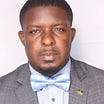UN disaster talks call for sustained political commitment
Over 5,000 delegates have registered for the event, which has the theme "from risk to resilience."
Indonesia: The seventh session of the Global Platform on Disaster Risk Reduction has begun in Bali, Indonesia, with calls for increased political will and financial investment to get the Sendai Framework for Disaster Risk Reduction back on track.
The Sendai Framework was approved at the Third United Nations World Conference in Sendai, Japan, in 2015 to accelerate the development of resilience among nations and communities, but its implementation is fraught with difficulties, including a lack of political will and funding.
Indonesian President Joko Widodo urged member countries to increase investments in all critical areas to slow the rise of risks during the GPDRR's official opening ceremony.
He gave the example of his country, which had 1,613 disasters in 2022 alone, with an average of 500 small or large scale earthquakes every month. Between 2015 and 2021, 121 volcanic eruptions were also recorded.
COVID-19, according to Widodo, is a new threat to the world today. He urged the delegates to devise strategies for establishing a strong recovery mechanism that would also prevent new risks from emerging.
In his speech, he also discussed the importance of strengthening a disaster-preparedness culture and institutions that are prepared for, responsive to, and capable of adapting to disasters.
Investment in science, technology, and innovation, as well as resilient infrastructure, should be prioritised by Indonesia's president.
Widodo stated that in order to get the Sendai Framework back on track, countries must begin to translate global commitments into action at the national and local levels.
"The Sendai Framework, the Paris Agreement on climate change, and the Sustainable Development Goals are all key international agreements aimed at reducing disaster risk and climate change," he said.
Amina Mohamed, UN Deputy Secretary-General, urged the audience to improve risk governance across the board when she took the podium.
She expressed concern that risk creation continues to outpace risk reduction.
"We do not yet have the governance frameworks in place to manage risks, whether from a global pandemic or a tsunami and to mitigate their impact’’ said Mohammed.
The Sendai Framework also aims to increase the capacity of early warning systems in order to reduce damage to critical infrastructure and the number of people affected by disasters.
According to Mohammed, the UN Secretary-General has asked the World Meteorological Organization (WMO) to present an action plan at the next UN Climate Conference, which will be held in Egypt in November, aimed at ensuring that every person on the planet is covered by early warning systems within five years.
She added: "We also need to factor disaster risk reduction into our financial frameworks." Alternative measurements, beyond Gross Domestic Product, should take account of disaster risk and resilience. The Multidimensional Vulnerability Index is one such metric.''
The African Union's Director of Sustainable Development and Blue Economy expressed satisfaction that the majority of issues raised during the opening session align with the Africa Common Position at the Global Platform for Disaster Risk Reduction, and he expressed hope that the outcomes will have an "African touch."
Over 5,000 delegates have registered for the event, which has the theme "from risk to resilience."






